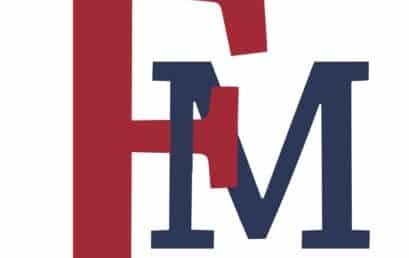MATH 301 – Ordinary Differential Equations
Prerequisites/Corequisites: Take MATH-202; Minimum grade C. (Required, Previous). Credit Hours: Min: 3; Max: Description: General first-order differential equations and second-order linear equations with applications. Other topics may include Mathematical models, computational methods, dynamical systems, aspects of higher-order linear equations, Laplace transforms, and an introduction to partial differential equations.
MATH 203 – Calculus III
Prerequisites/Corequisites: Take MATH-202; Minimum grade C. (Required, Previous). Credit Hours: Min: 3; Max: Description: Continuation of Calculus II, the course covers sequences, infinite series, improper integrals, and applications.
MATH 202 – Calculus II
Prerequisites/Corequisites: Take MATH-201; Minimum grade C. (Required, Previous). Credit Hours: Min: 3; Max: Description: Continuation of Calculus I, the course covers the integral, techniques of integration, the exponential function, the logarithm function, and applications.
MATH 201 – Calculus I
Prerequisites/Corequisites: Take 1 group (Take MATH-132; Minimum grade C /Take MATH-137; Minimum grade C /Take MATH-S570). (Required, Previous). Credit Hours: Min: 3; Max: Description: The first of a three-course sequence covering an introduction to the analysis of real-valued functions of one real variable. Topics include the limit of a function, continuity, the derivative, and applications. […]
ECON 204 – Intro to Macroeconomics
Prerequisites/Corequisites: Credit Hours: Min: 3; Max: Description: Introduction to the operation and behavior of the economy as a whole. Primary focus is the determination of the level of gross domestic product, the inflation rate, and the unemployment rate. Additional topics include interest rates, monetary and fiscal policy, and an introduction to international economics.
ECON 203 – Introduction to Microeconomics
Prerequisites/Corequisites: Credit Hours: Min: 3; Max: Description: Introduction to the role of individuals in economic decision-making, the determination of relative prices and output, and problems associated with resource allocation, monopoly, government regulation, and international trade
CS 227 – Programming & Algorithmic Design II
Prerequisites/Corequisites: Take CS-226; Minimum grade C. (Required, Previous). Credit Hours: Min: 3; Max: Description: Continuing study of algorithmic design, implementation, and analysis including object oriented design and implementation, abstract data types, stacks, queues, and linked structures.
CHEM 201L – Organic Chemistry I Laboratory
Prerequisites/Corequisites: Take CHEM-201. (Required, Concurrent). Credit Hours: Min: ; Max: Description:
CHEM 201 – Organic Chemistry I
Prerequisites/Corequisites: Take CHEM 112 and CHEM 112L. (Required, Previous). Credit Hours: Min: 4; Max: Description: The structure, properties, synthesis, and reactions of organic compounds, and their characterization by IR and NMR spectroscopies. Organic molecules studied include alkanes, alkenes, alkynes, and aromatics. The lab emphasizes separation, purification, and identification of organic compounds by physical, chemical, and […]
CHEM 112L – Gen Chem II Lab: Concept Lab
Prerequisites/Corequisites: Take CHEM 111 and CHEM 111L. (Required, Previous). | Take CHEM 112. (Required, Concurrent). Credit Hours: Min: 1; Max: Description: Introductory laboratory experiments reinforce concepts from Chem 112 as well as description and explanation of observed reactions, measurements, calculations, proper use of laboratory equipment and laboratory safety.
CHEM 112 – Gen Chem II: General Concepts Chemistry
Prerequisites/Corequisites: Take CHEM 111 and CHEM 111L. Credit Hours: Min: 3; Max: Description: Oxidation-reduction, equilibria, electrochemistry, thermodynamics, acids and bases, kinetics, chemistry of the representative elements, coordination compounds of the transition elements, nuclear chemistry.
CHEM 111L – General Chemistry I Laboratory: General Concepts in Chemistry
Prerequisites/Corequisites: CHEM 111 and MATH 111 (or MATH 111E). Credit Hours: Min: 1; Max: Description: Introductory laboratory experiments reinforce concepts from Chemistry 111 as well as description and explanation of observed reactions, measurements, calculations, proper use of laboratory equipment and laboratory safety.
